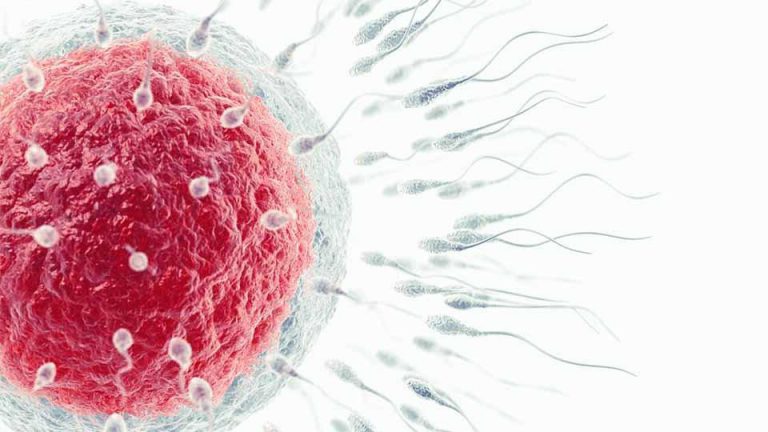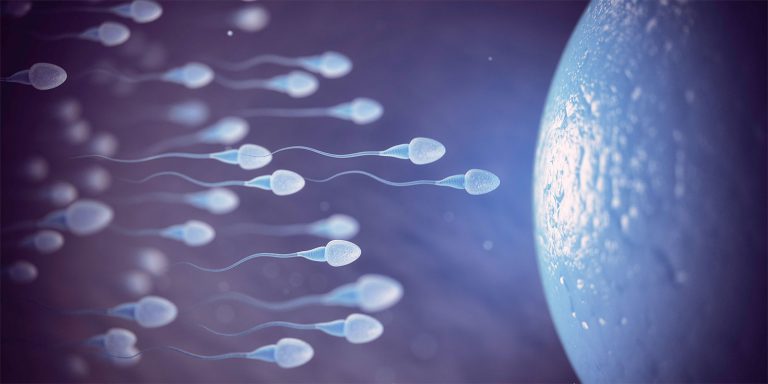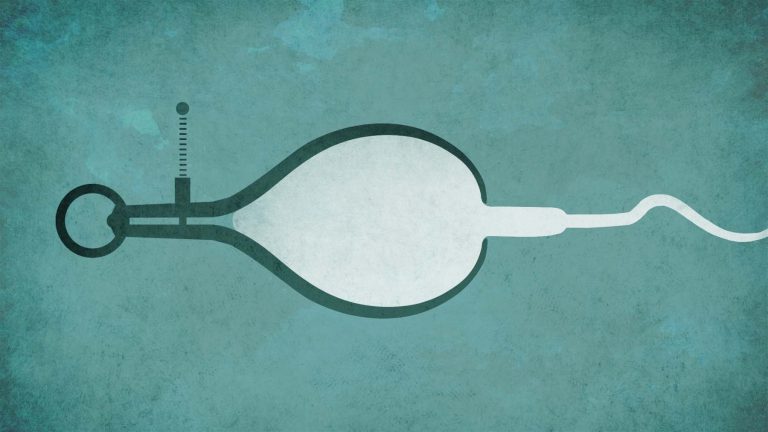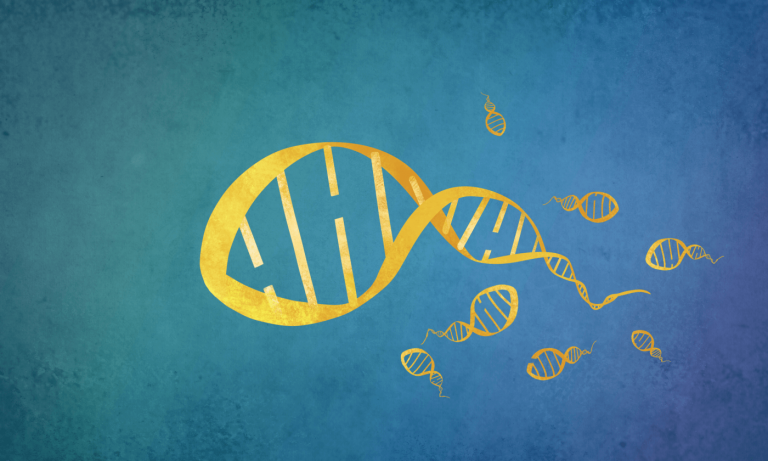Transgenerational epigenetic inheritance is an important factor to consider when it comes to passing down genes from parent to child. Epigenetics is how your DNA can be influenced by experiences and the environment, without altering the DNA itself. Transgenerational inheritance then refers to the effects of the influences being passed on to your children. Throughout this article, we will delve into the details of how this occurs and what it means for your fertility journey.
What is Epigenetics?
Before we jump in, let’s go back to biology class to catch up on some definitions. Your genes are units of traits that are passed down from parent to child. Genes are made up of DNA sequences that spell out instructions for how your body should look and function. An allele is a variation of a gene, which can determine how traits are expressed (i.e. eye color). A group of alleles makes up your genotype, or your unique DNA sequence. Whereas, your phenotype is the resulting observable outcome of the genotype – what you look like.
Epigenetics goes one step further than this. Once your DNA code is set, environmental exposures or experiences can leave marks or notes on the DNA that change how your DNA and traits are expressed, although the DNA itself is unchanged. Think about twins–two people who have the exact same genetic code. Yet, each has unique experiences that lead them to look and behave slightly differently.
So, does that mean eating better, exercising more, and avoiding toxins can really impact the health and happiness of your offspring? The scientific community is still trying to figure out to what extent this happens. In the meantime, there are a few excellent examples below about how transgenerational epigenetic inheritance happens in nature.
1. Imprint Genes and Fetal Development
Certain genes, known as imprint genes, play a special role in our body. Normally, we inherit two copies of each gene – one from our mother and one from our father. However, imprint genes are different; one of the copies, either from the mother or the father, undergoes a significant change called methylation (a form of epigenetic influence), so only one copy ends up producing a protein. This process is crucial for early development, especially during the formation of the embryo and placenta.
Epigenetic inheritance of imprinting is also crucial for later development. Some imprint genes play a role in early brain development. When they aren’t properly methylated, it can lead to conditions like Prader-Willi syndrome, Beckwith-Wiedermann syndrome, Silver-Russell syndrome, and Angelman syndrome. These genes are also believed to be involved in broader aspects of growth. You can learn more about this from an insightful interview with Dr. Gudrun Moore, who studies the epigenetics of growth and early development at University College London.
Methylation and Male Infertility
Methylation as an epigenetic process can have an effect on more than just imprint genes. Over the last few decades, numerous scientific studies have tried to understand the mechanisms behind male infertility. However, more than 50% of male factor infertility cases still have no known cause. Until very recently, we mostly thought sperm was simply delivering DNA to the egg. Our increasing understanding of epigenetics has shifted this view. Numerous studies have found abnormal methylation of sperm to be highly correlated with male infertility. You can find good reviews of the data by Douglas Carrell, Celine Boissonnas, and Singh Rajender.
2. The Agouti Mouse
A classic example of epigenetic mutation is the agouti mouse. In mice, the agouti gene controls hair color and typically produces brown hair. However, in agouti mice, the gene is turned on when hair follicles are developing as a result of environmental factors and can turn the hair yellow. If the agouti gene is turned on, mice are also predisposed to obesity and cancer. You could have two twin mice with the exact same genetic makeup, but if one twin’s agouti gene is turned on, they will look nothing alike.
As for epigenetic inheritance, these changes in fur color and weight can be passed down to the mice’s babies. If a mouse has the active agouti gene, their offspring might also have it, and be born yellow haired and obese. This happens because the chemical marks on the instructions aren’t cleared properly when the parents pass them on.
Interestingly, when agouti mice are given food with added nutrients, they have brown offspring that aren’t overweight and live longer. This indicates that the effects of the active agouti gene can be reversed with proper care, and offspring can inherit a healthier epigenome.
3. Environmental Impact on Inheritance
Environmental epigenetics is an interdisciplinary field involving experts from molecular biology, epidemiology, and mathematics. If we can understand how the environment affects our genes, it could revolutionize how we tackle diseases and think about passing traits to our children. However, the evidence supporting the link between environment, epigenetics, and inherited traits is still in its relatively early stages.
One fascinating area in epigenetics explores how our surroundings, like exposure to toxins or chronic stress, might lead to changes that affect future generations. Can the stress a parent experiences influence a child’s health even before conception?
When we talk about passing traits through generations, it’s crucial to note that the traits depend on being carried through the sperm and eggs. There are instances where the environment causes changes that are passed through the gametes. Research on female rats exposed to a fungicide showed that epigenetic changes in their male offspring persisted through at least four generations. In fact, epigenetic effects passed down through generations are less likely to be influenced by other behavioral factors when inherited from the father, as the father’s contribution to the environment of the fetus and newborn is significantly less than that of the mother.
On the other hand, not all inherited traits come from gametes; some are influenced by interactions with parents. For instance, mice raised by stressed mothers tend to be stressed themselves, showing behavioral changes inherited from their parents.
Ongoing Research in Epigenetic Inheritance
Epigenetics plays a major role in determining how an organism develops and how it adapts to its environment. However, there is some belief that many heritable epigenetic changes actually lead to decreased viability of embryos rather than acquired traits being passed down through generations. A very different way of looking at epigenetics could be as a mechanism for “long-term adaptation” or “short-term evolution,” where passing on acquired traits becomes crucial for species survival. Regardless, ongoing research in this field promises to reveal more exciting insights in the coming years.







